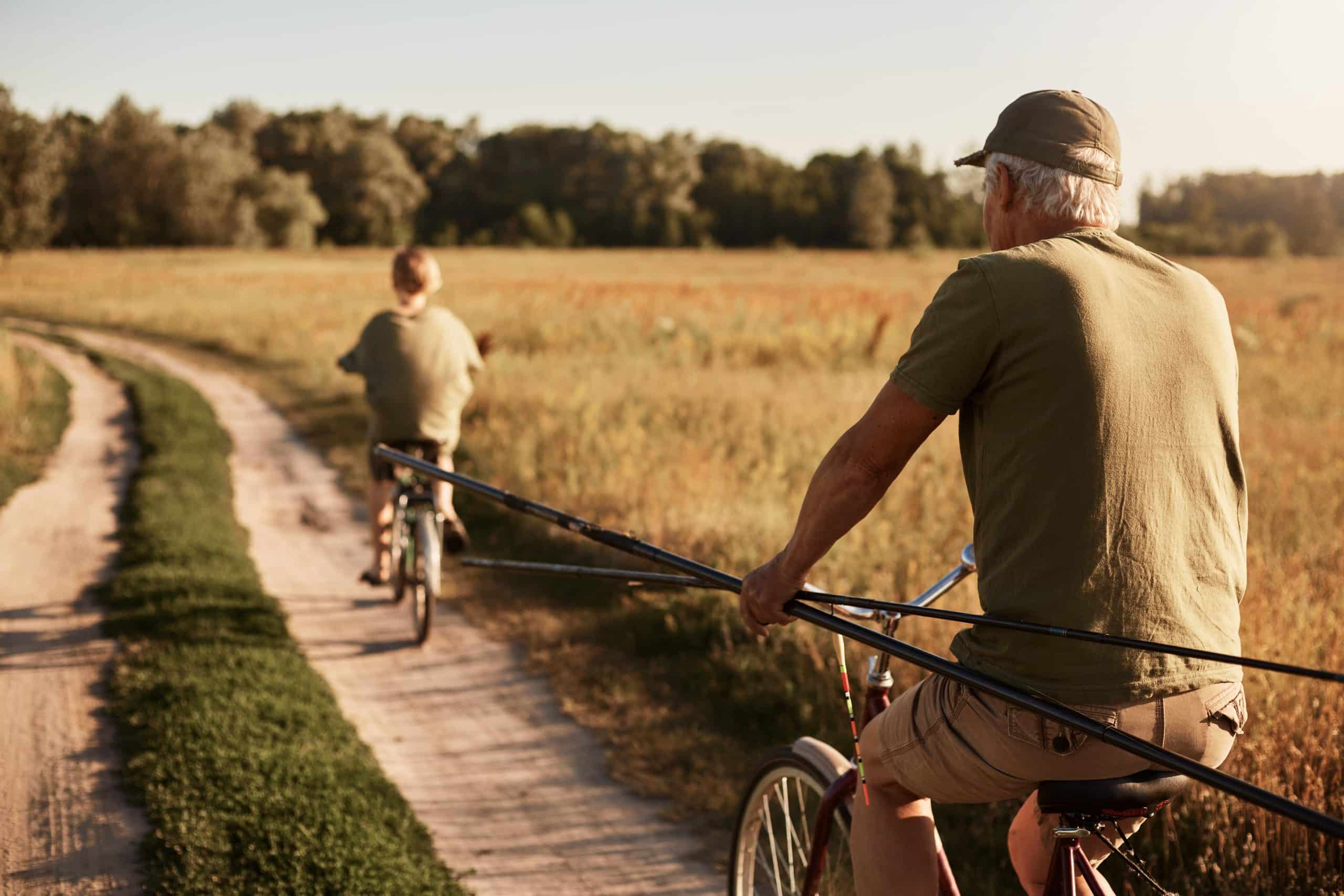Instagram, blessures, poursuites et agrotourisme : l’Ontario légifère – this explores the booming Ontario agritourism industry, its reliance on Instagram marketing, and the crucial legal implications. We’ll examine how farms use Instagram to attract visitors, the potential for accidents and resulting lawsuits, and how to navigate the legal landscape while promoting your business effectively. This isn’t just about pretty pictures; it’s about understanding the risks and responsibilities involved in blending social media with farm life.
This guide will cover the legal framework surrounding Ontario agritourism, offering practical advice on risk management, insurance, and creating a safe environment for visitors. We’ll analyze successful and unsuccessful legal strategies, emphasizing the importance of proactive safety measures and responsible social media practices. Ultimately, we aim to empower Ontario agritourism businesses to thrive while mitigating legal risks.
Instagram, Legal Liabilities, and Agritourism in Ontario
Ontario’s agritourism sector is booming, with farms increasingly leveraging social media, particularly Instagram, for marketing and customer engagement. However, this increased online presence brings new legal considerations and risks. This article explores the interplay between Instagram marketing, legal liabilities, and the future of Ontario agritourism.
Ontario’s new laws on agritourism are a good thing, addressing Instagram’s role in farm accidents and subsequent lawsuits. It’s a stark contrast to the sad news of OG Maco, ‘U Guessed It’ Rapper, Dead at 32 , reminding us that life is precious. Hopefully, these new regulations will help prevent future tragedies, regardless of how they’re documented online.
Instagram’s Role in Agritourism Promotion in Ontario
Ontario agritourism businesses utilize Instagram to showcase their unique offerings, build brand awareness, and attract tourists. High-quality photos and videos of picturesque landscapes, farm animals, and seasonal activities are crucial. Instagram Stories and Reels, with their ephemeral nature and engaging formats, are particularly effective in creating a sense of immediacy and encouraging interaction. Influencer marketing, where established personalities promote agritourism businesses on their accounts, can significantly boost reach and credibility.
Large-scale operations often employ dedicated social media managers and sophisticated marketing strategies, while smaller farms might rely on simpler, more organic approaches, focusing on authentic storytelling and community engagement.
Legal Liabilities and Risks Associated with Agritourism in Ontario
Ontario’s agritourism businesses operate under a specific legal framework that balances promoting tourism with ensuring visitor safety. The Occupiers’ Liability Act, for example, dictates the duty of care owed to visitors. Common accidents include slips, trips, falls, animal-related incidents, and equipment malfunctions. Comprehensive insurance, including liability coverage, is essential to mitigate potential financial losses from lawsuits. Effective safety protocols, such as clear signage, well-maintained facilities, and staff training, are crucial for risk management.
Regular safety inspections and emergency response plans are also vital components of a robust safety program.
The Impact of Legal Action on Ontario Agritourism Businesses

Lawsuits against Ontario agritourism businesses stemming from injuries or accidents can have severe consequences. These can include significant financial burdens from legal fees, settlements, and potential business closures. Successful legal defenses often hinge on demonstrating adherence to safety regulations, proper risk management, and clear communication of risks to visitors. Unsuccessful defenses, conversely, can lead to substantial financial penalties and reputational damage.
The cost of legal battles can be crippling for smaller operations, highlighting the importance of preventative measures.
Ontario’s new laws tackling Instagram’s impact on agritourism, specifically addressing injuries and lawsuits, are a significant step. It’s a stark contrast to the sad news; check out this article about Atlanta rapper OG Maco dies at 32, family confirms , a reminder that life’s unpredictable. Hopefully, these new Ontario regulations will help create safer and more responsible practices within the agritourism industry, minimizing future legal issues.
Hypothetical Risk Management Plan, Instagram, blessures, poursuites et agrotourisme : l’Ontario légifère

A proactive risk management plan is crucial for minimizing legal action. The following table Artikels a sample plan:
| Risk | Mitigation Strategy | Cost | Potential Impact |
|---|---|---|---|
| Slip and fall on uneven ground | Regular ground maintenance, improved lighting, warning signs | Moderate | Minor injury, legal action |
| Animal-related injuries | Proper animal handling training for staff, clear signage warning of animal presence | Moderate | Serious injury, significant legal action |
| Equipment malfunction | Regular equipment maintenance, safety inspections | Moderate to High | Injury, property damage, legal action |
| Visitor Illness | Clear food handling guidelines, allergen information, first aid training for staff | Low to Moderate | Minor to moderate legal action |
The Intersection of Social Media and Legal Responsibility in Ontario Agritourism

Ontario agritourism businesses have legal responsibilities regarding content posted on Instagram. This includes ensuring accuracy in descriptions, obtaining consent for using visitor images and videos, and adhering to copyright laws. User-generated content, while often positive, also carries legal implications as the business may be held responsible for its accuracy and potential for harm. Using images or videos of visitors without their consent could lead to privacy lawsuits.
Businesses must also be mindful of potential defamation claims arising from online reviews or comments.
- Obtain written consent before using visitor images or videos.
- Clearly communicate safety rules and guidelines on social media.
- Monitor online reviews and respond appropriately to address concerns.
- Ensure all online content is accurate and up-to-date.
- Regularly review and update social media policies.
Future Trends and Recommendations for Ontario Agritourism
Future trends in Ontario agritourism will likely see increased reliance on Instagram and other social media platforms for marketing, coupled with a greater emphasis on legal compliance and risk management. Businesses should prioritize creating authentic content, engaging with their audience, and fostering a strong online community. Government support could include providing resources on legal compliance, risk management, and social media best practices.
A successful agritourism business would incorporate a robust social media strategy, including high-quality photography, engaging storytelling, and interactive content. Simultaneously, they would implement rigorous safety protocols, comprehensive insurance, and proactive risk management strategies. This balanced approach would maximize the benefits of social media marketing while mitigating potential legal risks.
Last Recap: Instagram, Blessures, Poursuites Et Agrotourisme : L’Ontario Légifère

Successfully navigating the world of Ontario agritourism requires a smart approach to both marketing and risk management. By understanding the legal landscape, leveraging Instagram responsibly, and prioritizing visitor safety, businesses can build a thriving and sustainable future. Remember, a proactive approach to safety and legal compliance is not just about avoiding problems; it’s about fostering trust, attracting customers, and ensuring the long-term success of your agritourism venture.
Ontario’s new laws covering Instagram, injuries, lawsuits, and agritourism are a significant step, highlighting the need for safety regulations across various sectors. It makes you think about the risks involved in other high-impact activities, like professional boxing; sadly, a recent news story highlights this, Boxer Paul Bamba dies aged 35… just six days after his final fight , reminding us that even with training and precautions, unforeseen consequences can occur.
The Ontario legislation hopefully sets a precedent for better safety standards across the board.
Embrace the opportunities of social media while maintaining a strong commitment to safety and legal responsibility.
Question & Answer Hub
What types of insurance are essential for Ontario agritourism businesses?
Liability insurance is crucial, covering potential injuries or damages. Consider additional coverage for specific risks, such as product liability or property damage.
How can I effectively manage user-generated content on my Instagram page?
Establish clear guidelines for visitors posting content. Monitor your page regularly and address any inappropriate or potentially risky posts promptly. Consider requesting permission before using visitor photos.
What are some common accidents in Ontario agritourism settings?
Slips, trips, and falls are common. Animal-related incidents, equipment malfunctions, and activities like hayrides or farm tours also pose risks.
Are there specific legal requirements for signage and warnings on an Ontario farm involved in agritourism?
Yes, ensure clear signage regarding potential hazards, safety rules, and waivers. Consult with legal counsel to ensure compliance with all relevant regulations.